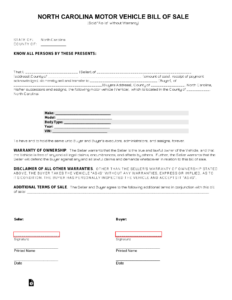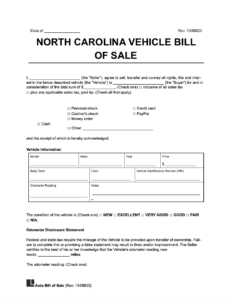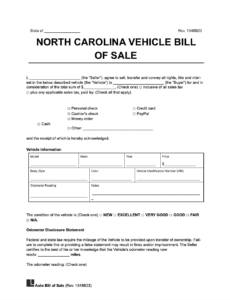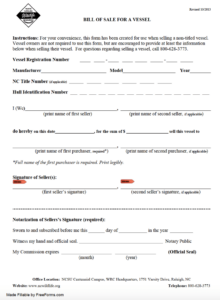When you’re buying or selling something, especially a significant item like a car, boat, or even a piece of furniture that holds real value, having a clear record of the transaction is incredibly important. It’s not just about shaking hands and exchanging cash; it’s about protecting yourself and the other party legally. A bill of sale acts as that vital document, outlining the details of the transfer of ownership.
For residents of the Tar Heel State, navigating sales transactions effectively means understanding the specific needs for a North Carolina bill of sale. It provides peace of mind and clarity for both the buyer and the seller, ensuring that everyone is on the same page and that there’s a proper paper trail for future reference, or perhaps even for registration purposes.
Why You Need a Bill of Sale in North Carolina
Having a bill of sale isn’t just a good idea; it’s often a legal necessity and a fundamental protection for both parties involved in a sale. Imagine you’ve just sold your old car or bought a new one. Without a proper document detailing the exchange, it can be incredibly difficult to prove ownership transfer, especially if issues arise down the line. This document serves as undeniable proof that the item in question changed hands on a specific date for an agreed-upon price.
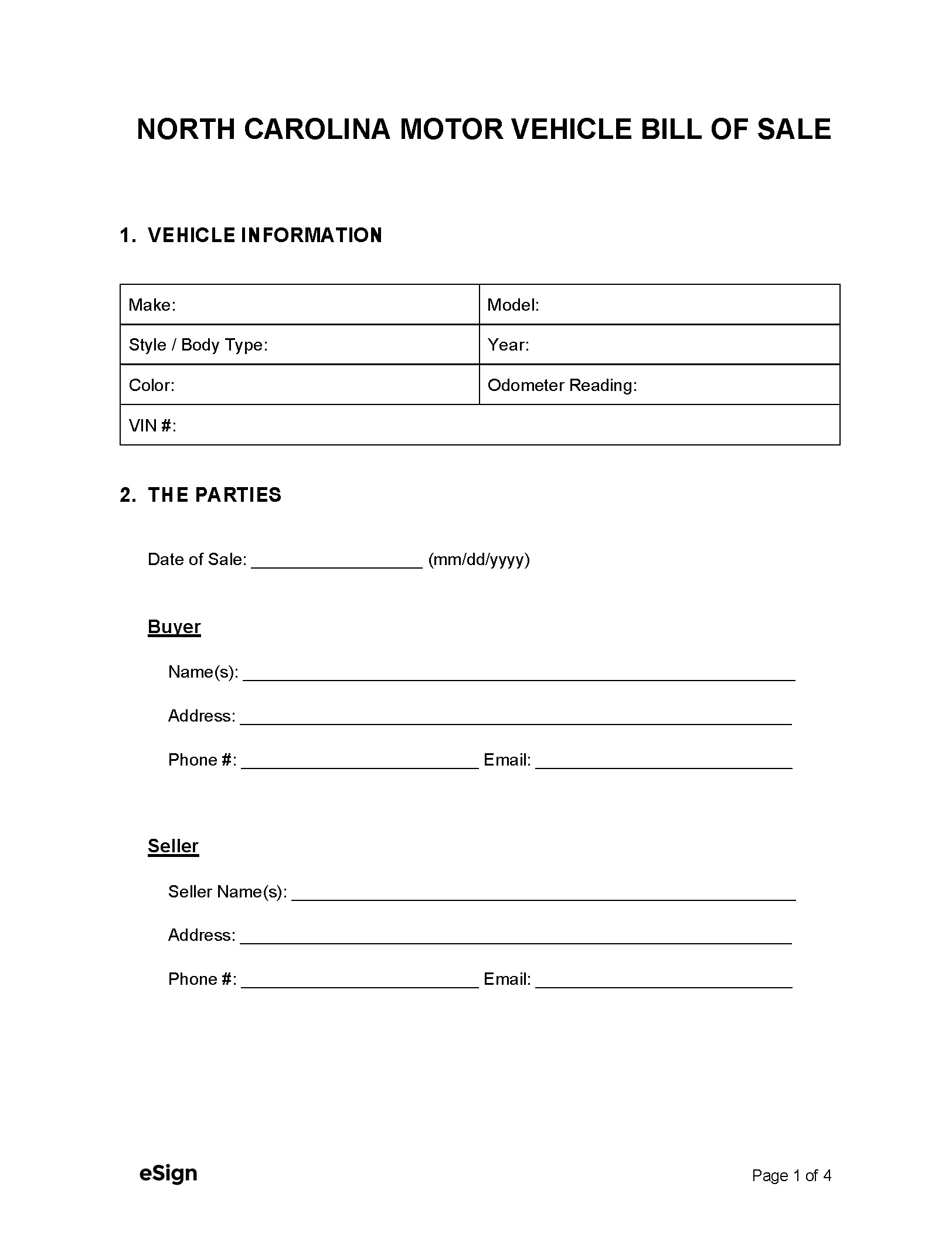
For sellers, it protects them from any liability related to the item after the sale is complete. Once the bill of sale is signed, their responsibility for the item effectively ends. For buyers, it’s proof that they legally own the item, which is crucial for registration (like at the DMV for vehicles), insurance claims, or even just demonstrating ownership if ever questioned. It’s truly a win-win for everyone involved in the transaction.
Think about the various scenarios where this documentation becomes invaluable. If you’re purchasing a vehicle, the Department of Motor Vehicles in North Carolina will typically require a bill of sale, or at least the information it contains, to transfer the title and register the car in your name. This applies similarly to boats, ATVs, and other titled property. Even for non-titled items, it provides a crucial record should there be a dispute over the item’s condition or the terms of the sale. It’s a foundational document for any legitimate transfer of goods.
A robust bill of sale ensures that all essential information is captured, preventing misunderstandings or disputes later on. It clarifies who bought what, from whom, for how much, and when. This can save a lot of headaches and potential legal battles down the road, making the transaction smooth and transparent for both the original owner and the new one.
Key Information to Include in Your Bill of Sale
- Full names and addresses of both the buyer and the seller
- A detailed description of the item being sold (e.g., make, model, year, VIN for vehicles, color, condition)
- The exact purchase price and method of payment
- The date of the transaction
- Signatures of both the buyer and the seller
Key Elements of a North Carolina Bill of Sale
Creating a bill of sale doesn’t have to be complicated, especially when you use a reliable bill of sale template NC. The most important thing is to ensure that all critical information is accurately recorded. First and foremost, the document needs to clearly identify both the buyer and the seller. This means including their full legal names and current physical addresses. This foundational information establishes who is involved in the transfer of ownership. Without it, the document lacks its most basic legal standing.
Next, a precise description of the item being sold is absolutely vital. For a vehicle, this would include the year, make, model, Vehicle Identification Number (VIN), odometer reading, and perhaps even the color. For other items, like a piece of equipment or furniture, specific details such as serial numbers, unique identifiers, or even distinguishing features should be noted. The more detailed the description, the less room there is for misinterpretation about what exactly was sold. This protects both parties from claims of misrepresentation regarding the item.
The financial details of the transaction are equally critical. The exact purchase price must be clearly stated, along with the method of payment (e.g., cash, check, bank transfer). If the item is being sold “as-is,” which is common in private sales, it’s a good idea to include a statement to that effect to manage expectations and minimize future disputes about the item’s condition. This clarifies that the buyer accepts the item in its current state, without any implied warranties from the seller.
Finally, and perhaps most importantly, the document must include the date of the transaction and be signed by both the buyer and the seller. The date establishes precisely when the ownership transfer occurred, which is crucial for legal and administrative purposes. Signatures from both parties signify their agreement to the terms outlined in the bill of sale. Depending on the type of asset and its value, some North Carolina transactions might also benefit from a witness or notarization, though this isn’t always strictly required for all private sales.
Taking the Next Steps in Your Transaction
Utilizing a well-structured bill of sale greatly simplifies the process of buying or selling goods, providing a clear and concise record that benefits everyone involved. It’s more than just a piece of paper; it’s a commitment and a safeguard, ensuring that your transactions are transparent and legally sound. By taking the time to properly fill out this document, you’re investing in peace of mind for all parties.
So, whether you’re offloading an old ATV or welcoming a new boat into your family, remember the importance of this document. It’s a simple step that yields significant benefits, streamlining administrative tasks and solidifying the terms of your sale, making every transaction in North Carolina a secure and confident exchange.
